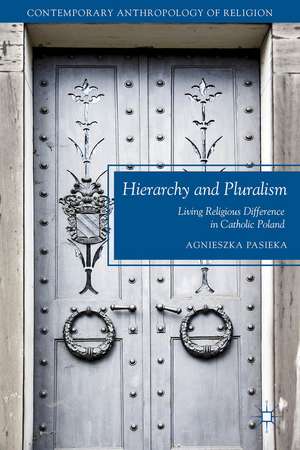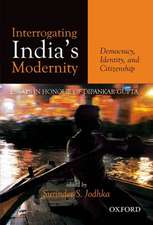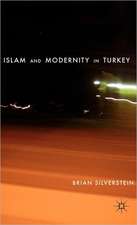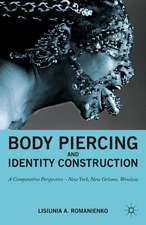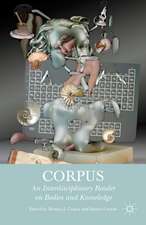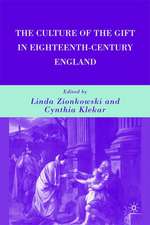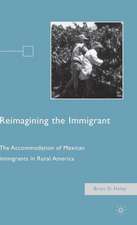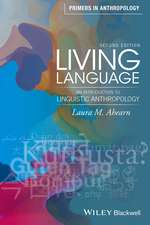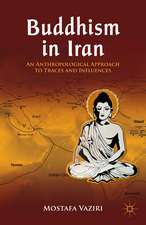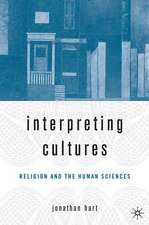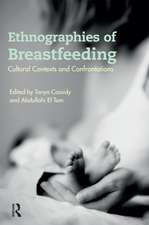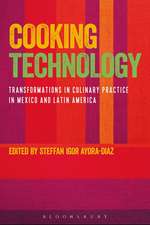Hierarchy and Pluralism: Living Religious Difference in Catholic Poland: Contemporary Anthropology of Religion
Autor A. Pasiekaen Limba Engleză Hardback – 18 mar 2015
| Toate formatele și edițiile | Preț | Express |
|---|---|---|
| Paperback (1) | 637.28 lei 6-8 săpt. | |
| Palgrave Macmillan US – 18 mar 2015 | 637.28 lei 6-8 săpt. | |
| Hardback (1) | 640.88 lei 6-8 săpt. | |
| Palgrave Macmillan US – 18 mar 2015 | 640.88 lei 6-8 săpt. |
Din seria Contemporary Anthropology of Religion
-
 Preț: 389.70 lei
Preț: 389.70 lei -
 Preț: 385.84 lei
Preț: 385.84 lei -
 Preț: 244.77 lei
Preț: 244.77 lei -
 Preț: 385.84 lei
Preț: 385.84 lei - 15%
 Preț: 586.05 lei
Preț: 586.05 lei -
 Preț: 384.86 lei
Preț: 384.86 lei -
 Preț: 379.09 lei
Preț: 379.09 lei -
 Preț: 228.56 lei
Preț: 228.56 lei -
 Preț: 388.72 lei
Preț: 388.72 lei - 15%
 Preț: 582.63 lei
Preț: 582.63 lei - 15%
 Preț: 643.16 lei
Preț: 643.16 lei -
 Preț: 383.12 lei
Preț: 383.12 lei -
 Preț: 384.86 lei
Preț: 384.86 lei -
 Preț: 383.12 lei
Preț: 383.12 lei -
 Preț: 390.84 lei
Preț: 390.84 lei - 15%
 Preț: 699.93 lei
Preț: 699.93 lei -
 Preț: 381.98 lei
Preț: 381.98 lei -
 Preț: 198.01 lei
Preț: 198.01 lei -
 Preț: 388.72 lei
Preț: 388.72 lei -
 Preț: 389.11 lei
Preț: 389.11 lei -
 Preț: 390.63 lei
Preț: 390.63 lei -
 Preț: 384.86 lei
Preț: 384.86 lei -
 Preț: 386.00 lei
Preț: 386.00 lei -
 Preț: 387.38 lei
Preț: 387.38 lei -
 Preț: 383.71 lei
Preț: 383.71 lei -
 Preț: 384.70 lei
Preț: 384.70 lei -
 Preț: 390.63 lei
Preț: 390.63 lei - 15%
 Preț: 702.41 lei
Preț: 702.41 lei - 15%
 Preț: 584.58 lei
Preț: 584.58 lei - 15%
 Preț: 633.53 lei
Preț: 633.53 lei - 15%
 Preț: 642.83 lei
Preț: 642.83 lei - 15%
 Preț: 641.71 lei
Preț: 641.71 lei -
 Preț: 482.56 lei
Preț: 482.56 lei - 15%
 Preț: 646.11 lei
Preț: 646.11 lei
Preț: 640.88 lei
Preț vechi: 753.97 lei
-15% Nou
Puncte Express: 961
Preț estimativ în valută:
122.64€ • 131.14$ • 102.25£
122.64€ • 131.14$ • 102.25£
Carte tipărită la comandă
Livrare economică 17 aprilie-01 mai
Preluare comenzi: 021 569.72.76
Specificații
ISBN-13: 9781137500526
ISBN-10: 1137500522
Pagini: 261
Ilustrații: XIX, 261 p.
Dimensiuni: 140 x 216 x 20 mm
Greutate: 0.43 kg
Ediția:2015
Editura: Palgrave Macmillan US
Colecția Palgrave Macmillan
Seria Contemporary Anthropology of Religion
Locul publicării:New York, United States
ISBN-10: 1137500522
Pagini: 261
Ilustrații: XIX, 261 p.
Dimensiuni: 140 x 216 x 20 mm
Greutate: 0.43 kg
Ediția:2015
Editura: Palgrave Macmillan US
Colecția Palgrave Macmillan
Seria Contemporary Anthropology of Religion
Locul publicării:New York, United States
Cuprins
Introduction: Seven Ways to God PART I: MAPPING RELIGIOUS PLURALISM 1. Poland: A History of Pluralism 2. Making Pluralism: The People and the Place PART II: PLURALIZING THE PAST 3. Caroling History: Heteroglossic Narratives and Religious Boundaries 4. Religion and Memories of Socialism PART III: ACTING UPON LOCALITY 5. The Different and the Common: About Multireligious Neighborhoods 6. Debating Pluralism Conclusions: Challenging Hierarchical Pluralism
Recenzii
“Hierarchy and pluralism is a thoughtful and sensitive ethnography that will appeal to a number of different readerships. In addition to being very valuable to those interested in the anthropologies of Poland and of religion, it would be apt for courses teaching ethnographic methods, posing as it does such interesting questions about how the scale of a fieldsite relates to the research questions being explored. The book will invite cross-cultural comparison with other societies that include multiple religions … .” (Siobhan Magee, Journal of the Royal Anthropological Institute, Vol. 23, 2017)
“Pasieka tries to strike a delicate balance between documenting the dominance of the Catholic Church and capturing evidence for pluralistic coexistence. I appreciated the author’s enthusiasm to identify small possibilities for spaces in which minorities might be recognized. Ultimately, however, the book demonstrates the limits of Polish ‘ecumenism,’ showing that multireligious and multiethnic conviviality is fragile and ambiguous and perhaps more akin to a veneer in Rozstaje, where it can quickly turn toward intolerance and xenophobia.” (Joanna Mishtal, American Anthropologist, Vol. 118 (4), December, 2016)
“Her book functions on two levels: as a fine-grained analysis of the religious practice of inhabitants of a multireligious area within a mostly religiously homogeneous country, and as a theoretical inquiry into the ways in which the exercise and expression of religious pluralism can nevertheless lend sup- port to 'naturalized' hierarchies between ethnic and religious groups. … Hierarchy and Pluralism makes a valuable contribution to the anthropological literature on contemporary religion, practice theory, and postsocialism.” (Marysia H. Galbrait, American Ethnologist, Vol. 43 (2), May 2016)
“Pasieka’s book is accessible and even quite eloquent. It is one of those rare academic books that is actually a pleasure to read. … I cannot recall another book aboutPoland from the past decade that has achieved this goal with such eloquence and with such solid argumentation.” (Brian Porter-Szucs, H-Poland, networks.h-net.org, January, 2016)
“Pasieka stresses and illustrates the importance of studying religion through understanding how it is lived by people … . she tells a convincing story which is always interesting and provides an excellent example of how to conduct productive fieldwork. I recommend the book without any hesitation whatsoever to students, academics, and lay persons with the slightest interest in learning about religions and how people live them. … Hierarchy and Pluralism is one of the best monographs I have ever read.” (Eileen Barker, Rascee, Vol. 8 (1), 2015)
“Pasieka tries to strike a delicate balance between documenting the dominance of the Catholic Church and capturing evidence for pluralistic coexistence. I appreciated the author’s enthusiasm to identify small possibilities for spaces in which minorities might be recognized. Ultimately, however, the book demonstrates the limits of Polish ‘ecumenism,’ showing that multireligious and multiethnic conviviality is fragile and ambiguous and perhaps more akin to a veneer in Rozstaje, where it can quickly turn toward intolerance and xenophobia.” (Joanna Mishtal, American Anthropologist, Vol. 118 (4), December, 2016)
“Her book functions on two levels: as a fine-grained analysis of the religious practice of inhabitants of a multireligious area within a mostly religiously homogeneous country, and as a theoretical inquiry into the ways in which the exercise and expression of religious pluralism can nevertheless lend sup- port to 'naturalized' hierarchies between ethnic and religious groups. … Hierarchy and Pluralism makes a valuable contribution to the anthropological literature on contemporary religion, practice theory, and postsocialism.” (Marysia H. Galbrait, American Ethnologist, Vol. 43 (2), May 2016)
“Pasieka’s book is accessible and even quite eloquent. It is one of those rare academic books that is actually a pleasure to read. … I cannot recall another book aboutPoland from the past decade that has achieved this goal with such eloquence and with such solid argumentation.” (Brian Porter-Szucs, H-Poland, networks.h-net.org, January, 2016)
“Pasieka stresses and illustrates the importance of studying religion through understanding how it is lived by people … . she tells a convincing story which is always interesting and provides an excellent example of how to conduct productive fieldwork. I recommend the book without any hesitation whatsoever to students, academics, and lay persons with the slightest interest in learning about religions and how people live them. … Hierarchy and Pluralism is one of the best monographs I have ever read.” (Eileen Barker, Rascee, Vol. 8 (1), 2015)
Notă biografică
Agnieszka Pasieka is a research fellow at the University of Vienna, Austria.
